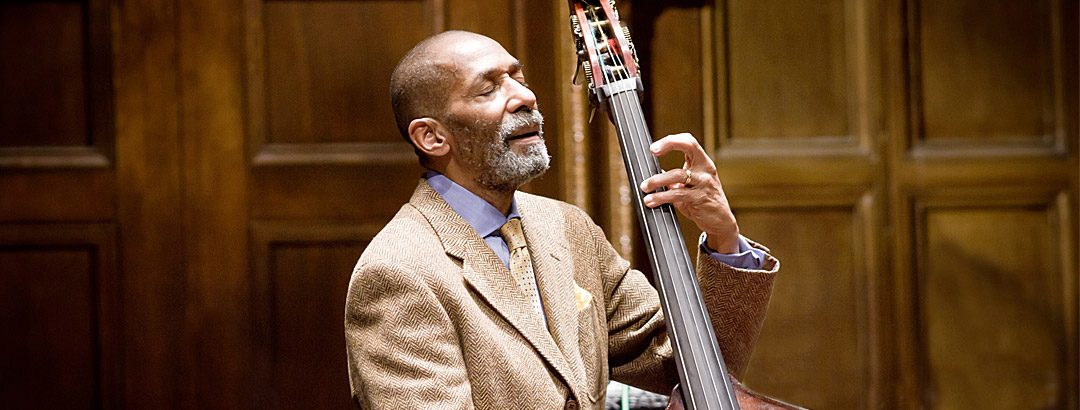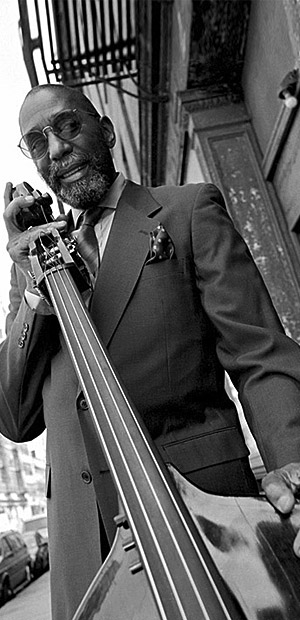
Ron Carter
Recording Artist, Composer, Arranger, Educator, Author
Ron Carter is among the most original, prolific, and influential bassists in jazz. With more than 2,000 albums to his credit, he has recorded with many of music’s greats: Tommy Flanagan, Gil Evans, Lena Horne, Bill Evans, B.B. King, the Kronos Quartet, Dexter Gordon, Wes Montgomery, and Bobby Timmons. In the early 1960s he performed throughout the United States in concert halls and nightclubs with Jaki Byard and Eric Dolphy.
Carter earned a bachelor of music degree from the Eastman School in Rochester and a master’s degree in double bass from the Manhattan School of Music in New York City. He has also received four honorary doctorates, from the New England Conservatory of Music and the Manhattan School of Music, and was the 2002 recipient of the prestigious Hutchinson Award from the Eastman School at the University of Rochester. Most recently he was honored by the French Minister of Culture with France’s premier cultural award–the medallion and title of Commander of the Order of Arts and Letters, given to those who have distinguished themselves in the domain of artistic or literary creation and for their contribution to the spread of arts and letters in France and the world.
Carter has lectured, conducted, and performed at clinics and master classes, instructing jazz ensembles and teaching the business of music at numerous universities. He was Artistic Director of the Thelonious Monk Institute of Jazz Studies while it was located in Boston and, after 18 years on the faculty of the Music Department of The City College of New York, he is now Distinguished Professor Emeritus although, as a performer, he remains as active as ever.
For additional information please visit:
– http://roncarter.net/
Hear The Ron Carter Trio Playing Autumn Leaves
What Is It Take To Making In Music? Here Is The Advice Of Jazz Master Ron Carter
Why did you choose music as your career?
I started as an 11 year old cellist and found that music could be a great “voice” for me.
On days when you are not performing or rehearsing how long do you practice for?
Two hours at the most.
What do you mostly work on when at home practicing?
Mainly scales and technical etudes and exercises.
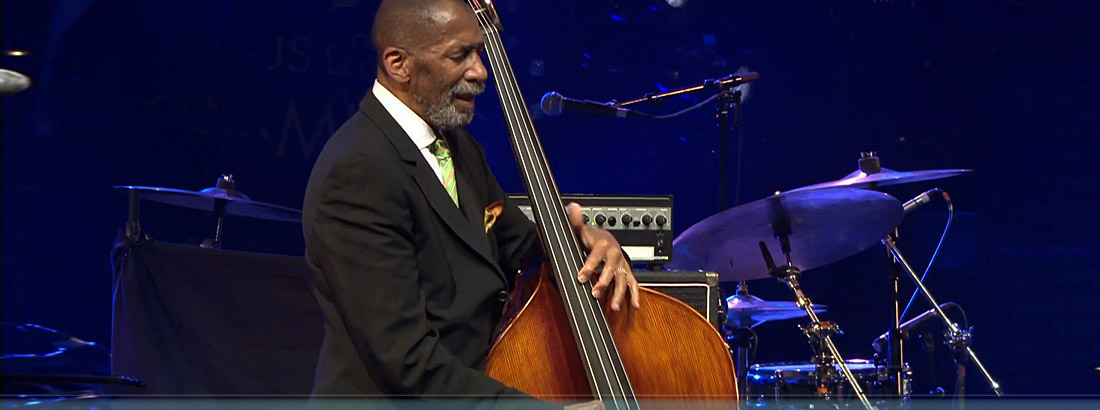
Of all your compositions, is there one that is your all time favorite?
Little Waltz.
When you are improvising are you thinking about scales or are you simply playing melodies and ideas that are playing in your head?
Melodies and chords based on the ideas I hear.
When soloing, do you have the chord changes memorized or do you simply have an idea of shapes and colors of the tune?
I have the chord changes to the song memorized… and I try to fit in different changes as the melody/my ideas allow.
Are you normally not really concerned with the actual chord changes?
There is wonder in every little detail if you choose to find it.
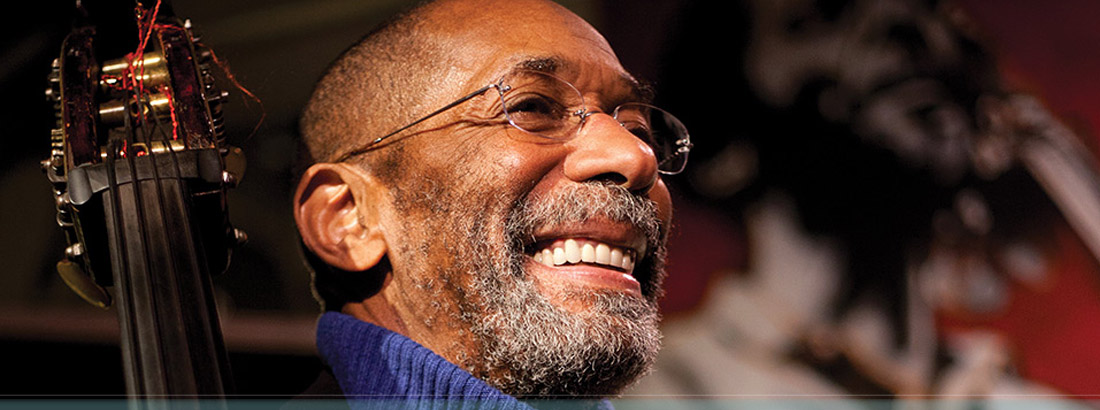
Do you prefer to play with your own band or with other groups?
I am interested in playing in any musical environment that helps me improve.
Do you approach your playing any different if you are playing with your big band as opposed to as a soloist in somebody else’s group?
No.
How much time and effort do you put into composing?
As much time as it takes to finish the composition.
When recording your album, do you go for the first solo or do you do a few takes of the solo until you are happy with the result?
I try to “allow” only 2 takes per take.
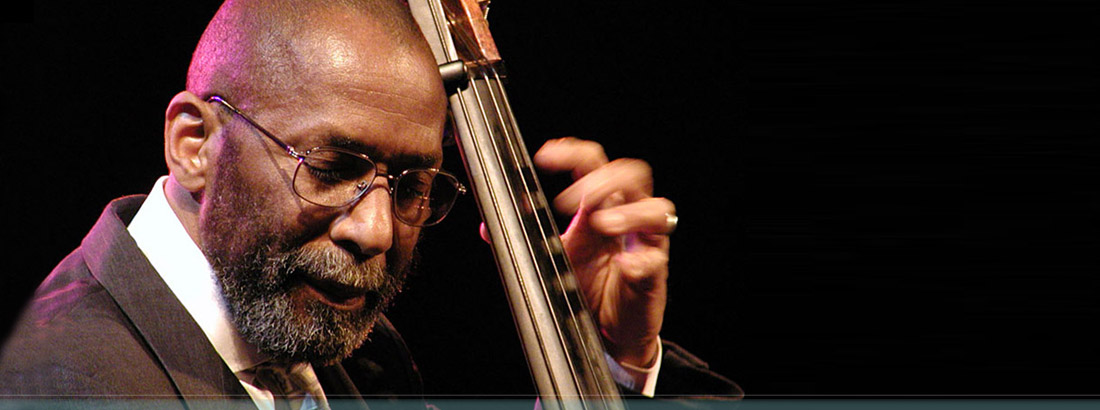
Do you have a formula you follow when working on new compositions?
No.
When composing do you work out a progression then a melody or does the melody come first?
Occasionally it is either way.
Do you do the arrangements for your own compositions or do you delegate that to someone else?
I’ve done them myself, and have hired arrangers to do them.
Who do you listen to for inspiration?
I listen to any style of music that is played well.
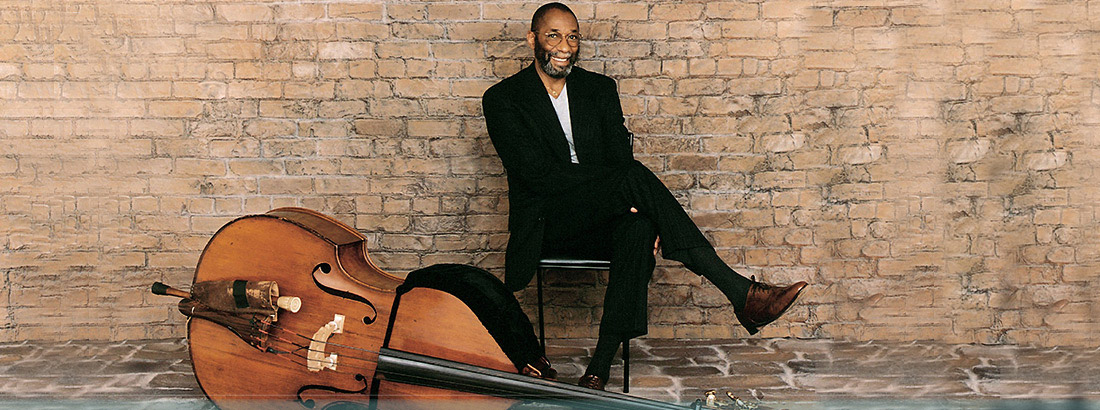
What equipment are you currently playing?
My bass cabinet and amplifier are made by Epifani and I am playing on la Bella #7701 bass strings.
Do you select different equipment depending on the group or what the job calls for?
I may change the bass cabinet speaker size fron a 12″ to 12″ cabinet… depending on the size of the room.
Now that you are an established musician, what is your biggest career challenge?
IMPROVING !!
Do you enjoy teaching or do you prefer to be out recording and playing instead?
I enjoy teaching and recording/playing.
Best advice you would give to an upcoming player?
Find a teacher. Period.
Learn some keyboard. Instrumentalists should know what the chords look like on piano. That gives you an idea of how your notes affects the quality of the sound—whether you play a C or a B-flat under a C7 chord, for example. If you have some keyboard skill, you can hear what that stuff sounds like. It also helps when you’re learning a new tune; if you can get to a piano and figure out what the
chords are, you can stumble through the melody. And if you can, study composition too.
Play as often as you can. The more you play, the more you can make mistakes and learn how to fix them. Don’t limit yourself to one band and one concept of rhythm-section playing. The more experiences you have, the more you can bring it all under one umbrella.
Always know what your instrument really sounds like. Go into a corner and play some scales, without trying to knock down the walls— you’ll hear what kind of quality you actually have in that small space. Is the sound dark or light? Are the notes short, or are they long? Is the sound warm? Is it flat? Is there any resonance? I still do that because I just like to get an idea of what’s going on with my bass and its sound.
Best tip for anyone learning the art of improvisation?
The first thing any improviser must know is what chords are attached to each note. You need to know what chords are attached to this note and what other chords can be used to give harmonic validity. So, the first thing I’d suggest is learn harmony and theory to understand what chords do to certain melodies. Second, stay away from trying to play a lot of notes. Half notes are fabulous. Half notes and rests are two of the greatest things invented.
Classical players tend to saw away at notes or scrape the bow or pluck at random. They don’t think about chords. They don’t think to analyze. That’s not the job of a second violinist in an orchestra. Knowing what the chords are is not their concern. Our concern as jazz improvisers is much more complicated than just playing a note.
Improvising doesn’t mean you have to have a different technique or skill. Jazz requires the same skill level as classical music, but it’s more complicated because you play notes that you don’t know are coming in advance. It’s hard to prepare your left and right hands so as to make those notes easily attainable.
I’d recommend listening to as many jazz musicians as possible who play an instrument different from your own. A violin player could listen to Charlie Parker on saxophone or Miles Davis on trumpet. A cellist could listen to bassist Oscar Pettiford or me. By listening to others, you can get some ideas about how you could sound on your own instrument. For example, if you’re a violinist and you listen to Jean-Luc Ponty, you may not learn what your own violin playing could be. That’s what Ponty has done. Why not listen to a saxophone player to hear what other choices are available?
Last, don’t worry about trying. You can’t learn to improvise in three weeks. You can just keep working at it, and it’ll come.
Ron Carter Discusses A Life In The Music Business
